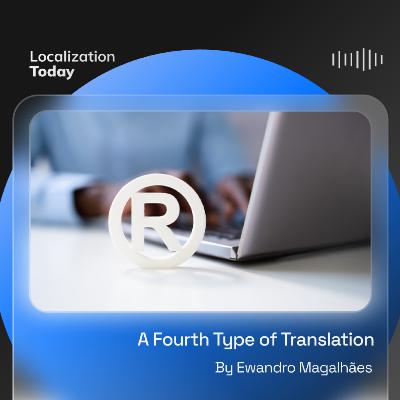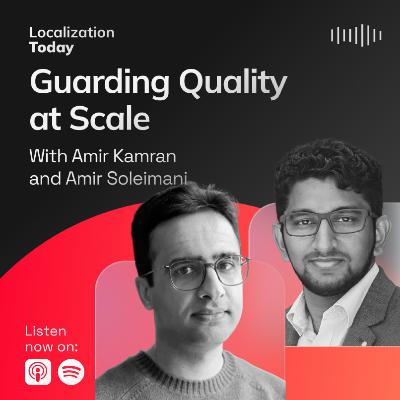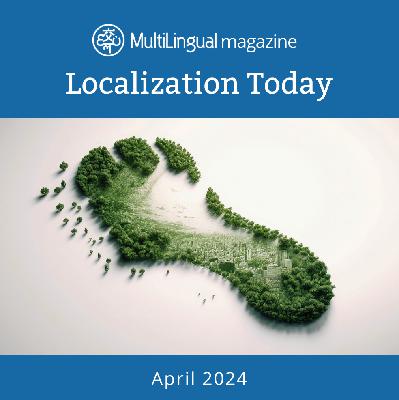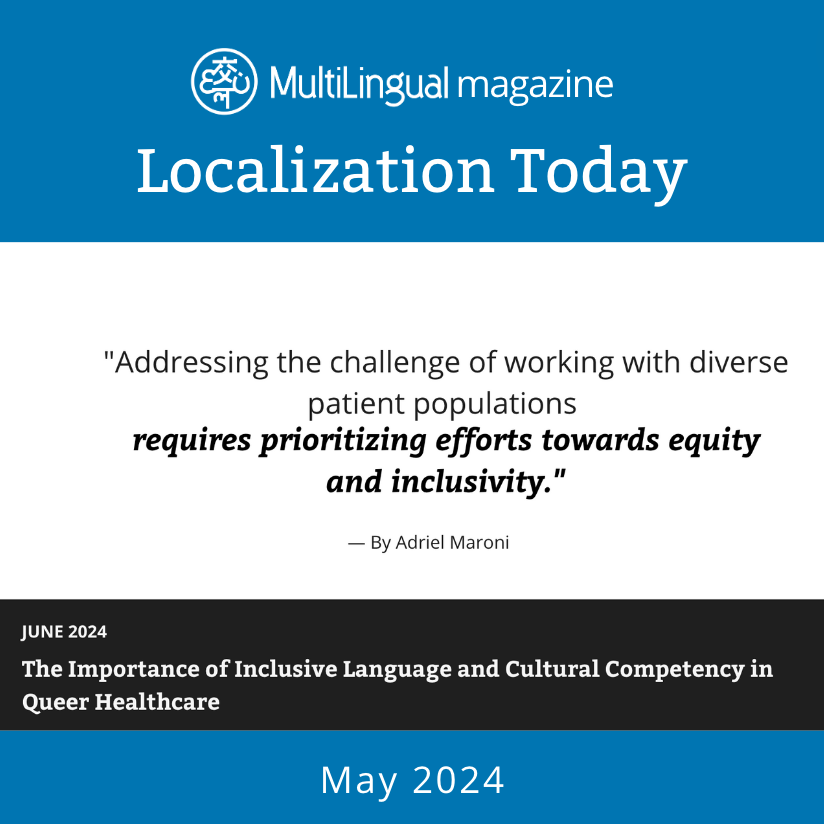Discover Localization Today
Localization Today

703 Episodes
Reverse
By Ewandro Magalhães
Prompted by his own experience of co-authoring an article with AI, the author explores a “fourth type of translation” — that between human and machine. He considers the protocols for AI collaboration: At what point does assistance cross into ghostwriting? When does augmentation become abdication?
Amir Kamran and Amir Soleimani from Taus unpack Quality Estimation (QE) as the missing link between machine translation at scale and human-quality outcomes. They frame QE as an automated “second opinion” that flags what can ship, what needs a quick AI touch-up, and what should go to a linguist—shifting human effort to the tricky, high-risk bits.
In this conversation, we explore where this matters most (high-volume content, real-time chat, regulated use cases), how QE reshapes workflows after MT, and why language access still demands human oversight in sensitive domains. They close with what’s next: lighter, task-focused models, more agent-style automation, and a broader definition of quality that favors fitness-for-purpose over perfection.
Are you looking to integrate business success with positive social and environmental impact? Laura Gori urges language service providers to consider the Benefit Corporation model, a framework that helped her business, Way2Global, reach its sustainability goals without sacrificing growth.
By Adriel Maroni
How can language professionals help improve healthcare for LGBTQ+ individuals? Adriel Maroni argues that using gender-neutral terminology, allowing for self-identification, and exercising open-mindedness goes a long way towards fostering inclusive and culturally competent care.
By Nuha Alhejji
This article describes why Saudi Arabia approaches artificial intelligence (AI) in translation as a question of design, focusing less on speed and more on accountability. The author explains the need to prioritize human judgment as the country develops its AI-enabled translation systems.
By Hani Alotaibi
In Saudi Arabia, translation and interpreting education is being reshaped by workforce policy, with curriculum reform and graduate employability increasingly treated as measurable institutional obligations. This article delves into how some of the country’s universities are tackling this transformation.
By Hani Alotaibi
Language access in Saudi Arabia has evolved through a sequence of policy interventions that have positioned language as a functional pillar of broader institutional transformation. By integrating language access into governance structures and public service design, these policies aim to better serve non-Arabic speakers and to provide employment opportunities for Saudi nationals.
By Abdulrahman Alsayed
Founded in 2019, the Saudi Arabia Translation Association (SATA) serves as a hub for the nation’s linguists, linking professional practice to the wider cultural landscape. Through educational resources and outreach activities, the organization aims to empower translators to be active agents in the production of meaning.
By Abdulrahman Alsayed
In Saudi Arabia, translation has moved from an auxiliary service to a defining element of a broad national transformation, reflecting a change in how culture and knowledge are understood in the Kingdom. This article outlines the Saudi translation sector’s new structure and its role in strengthening the country’s presence on the global stage.
Saudi Arabia and the localization of gaming and esports
By Amer Qobti
Fueled largely by its young population and the multibillion-dollar National Gaming and Esports Strategy, Saudi Arabia is rapidly becoming a global gaming and esports hub. The author details the essential role that localization plays in driving this growth.
What began as a search for peers in a male-dominated field has grown into a global powerhouse of over 18,000 members. In this episode, Anna N Schlegel, co-founder of Women in Localization and author of Truly Global, joins us to explore how leadership, community, and visibility have fundamentally transformed the language industry over the last 19 years.
The conversation digs deep into the future of the profession, specifically the urgent need for women to move beyond support roles and lead in R&D and product development. She discusses the new "We Shape AI" initiative, addressing critical gender and cultural biases in Large Language Models (LLMs).
Vamos Juntos association is transforming the language services landscape in Latin America and the Caribbean. We are joined by Carol Velandia, Cristina Barbier, and Indy Vega to discuss the evolution of the association, the power of "coopetition," and the upcoming Vamos Juntos 2026 event in Buenos Aires.
Inclusion isn't just a social value, it’s a growth strategy. Joshua Pennise, the new President of the Association of Language Companies (ALC), joins us to explain why the industry must shift its narrative from “compliance” to “economic multiplier.”
In this episode, we discuss the ALC’s critical advocacy work against irresponsible AI legislation, the convergence of sign and spoken language sectors, and why connecting with 80% of the world’s non-English speakers is the ultimate meritocracy.
Meet last year’s awardees, including STAR Award winner Nadja Ruhl
By Uma Kulkarni
Women in Localization (WL)’s 2025 Kudos and STAR Award winners are some of the organization’s most standout volunteers. In this article, WL celebrates their indispensable contributions that inspire excellence and help propel the organization forward.
The evolution of the African Languages Conference
By Mimi Moore
This article recounts the establishment, rapid growth, and future goals of the AFLC conference, which was co-founded by Avishta Seeras and Ady Namaran Coulibaly to address the lack of African voices in global language spaces.
Interview by Cameron Rasmusson
As Verizon’s head of localization, Megan Sharp ensures its customers receive the same service quality no matter where they live or what language they speak. In this interview, she discusses the career path that led her here, her predictions for the future of localization management, and what motivates her to do her best work every day.
How the language industry can talk more honestly about AI
By Domenico LombardiniThe author argues for using history and data to evaluate AI’s impact as objectively as possible, including acknowledging the tradeoffs it brings. He concludes by advocating for revamped linguistic training programs that equip young people with tools to compete on value, not price.
By Carol Velandia
The author argues that providing language access more evenly throughout the world depends on recognizing it as a civil right, co-designing solutions with communities most affected by language barriers, and providing stable funding and business models for language access work.
Machine translation is about "dynamic prompting" and hybrid workflows. In this episode, we sit down with Ágnes Varga (CTO) and Gábor Bessenyei (Product Manager) from memoQ to discuss their 2025 CODiE Award win for Globalese. We explore how memoQ bridged its MT gap by integrating Globalese, why the industry is moving toward risk-based quality assessment, and why the future of the linguist lies in "data curation" and maintenance.
Language services offered steady consolidation opportunities in 2025
By Jonathan Otis
Compared with the wider mergers and acquisitions market, the language industry stands out for its moderate growth, fragmented markets, and global footprint. In 2025, much of the localization business saw steady returns while operating largely out of the limelight.
























